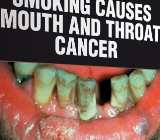Honestly
this it the truth, the Gospel truth, and nothing but the truth, according
to my advocate.
It looks as though
the honesty bar has been
set far too high for South
Africa
What is even more sickening is that
there are people in the advocates profession charged with upholding ethics who rally
round rotten colleagues in an effort to let them off as lightly as possible.
There are Judges too, who watch the show in court, and remain silent.
Three High
Court judges were asked to decide whether 13 advocates, who they
picturesquely described as having mounted the steed of greed, should be allowed
to continue riding to bank their ill gotten gains.
They had ripped
off the Government’s Road Accident Fund (RAF) for
millions by taking two or more briefs a day and charging a day’s fee for each one.
The judgment
makes fascinating reading. It revealed
that there is such an insidious rot in the justice system that advocates in
high places can’t even agree on what is honest.
Before the judges were asked to make a
decision the men were dealt with by the disciplinary committees of their
regional Bar Council in Pretoria
The first hearing
dealt with 10 of the men. It was headed by Hennie de Vos, a Senior Council no less,
who is now a Judge. It decided that they all acted honestly,
admirably and in the interests of the public and
the furtherance of the administration of justice in helping to clear the congested court roll.
Their breaches of the rules were not to be condoned but were not dishonest.
With pals like that you can’t go
wrong. How could anybody possible think that it was dishonest to charge for hours
not worked and to overcharge as well. Billing for a day as long as 49 hours is nothing more than dedication it seems, if
you are being judged by your friendly peers.
Two more appeared at the next hearing headed by Louis Vorster SC who is now
an Acting Judge, and it took a diametrically opposite view
on the same facts. It
decided, what the first tribunal should have done, that these advocates had been dishonest and that a Court should
order them to
be struck off the roll.
Their user friendly Bar Council then
galloped to their aid. It sided with the first honest definition and refused to accept the
second one. It imposed sanctions similar to the ones given to the initial 10.
All of them were fined between R16 000 and R230 000
and as the judges observed, It strikes
one as odd that the Bar Council did not required them to make amends by returning the ill-gotten
gains.
You can say that again Your Honours
considering the amounts involved ranged between R94 000 and R1.9-million. The Bar Council evidently
believed that enterprise on this scale should be rewarded.
It did give them a token, additional penalty by
suspending them for between one and six months. Hardly a hardship when you are
a millionaire.
More importantly
everybody could go on kidding themselves that advocates were like George
Washington, who could never tell a lie, and were as honest as any client
could possibly want.
Unfortunately for these virtuous
gentlemen the three judges ruled in favour of the second definition of honesty
saying that the De Vos hearing had closed its eyes to the obvious and that sanctimonious statements that they were doing this to help the Court to
combat the congested roll do not wash.
But they too showed a soft spot for their fellow
legal practitioners. Having said that if dishonesty was involved only exceptional
circumstances would prevent somebody from being removed from the roll Your Honours
only struck off six of the offenders.
It was hard to believe that more
than 50% of these dishonest
advocates, who had been at the Bar for up to 32 years and had all pleaded guilty,
could be classified as exceptions
for reasons like, appears not to have been actuated
by greed(he filched
R984 000, but luckily he was not greedy) ; expressed
regret; blew the whistle on himself; felt ashamed and so on.
The judges ordered all of them to return their wages of sin
to the RAF. The other penalties that
the Bar Council had imposed remained. It’s
hardly a great imposition to have to refund money that you have had the use of,
interest free for ages. To cushion the blow some were allowed to repay it in 12 monthly instalments.
Four even had the gall to ask for the repayments
to be reduced by 33% to account for income tax
which they might not be able to recover from the Receiver
of Revenue.
It would be interest to know how much
of the loot had been reflected in the tax returns of these pillars of the legal
fraternity.
The judges asked, Why did the Bar Council fiddle while
Rome
In
2007 Sam Maritz SC, convenor of the Professional and Ethics Committee,
countered suggestions that nothing was being done saying that the problem had virtually disappeared and
helpfully he flatly
refused to become a policeman.
No wonder the fires blazed on.
And it was
not surprising that Maritz’s name should pop up again as a member of the De Vos panel that
found there was no dishonesty involved.
Most disturbing of all was what the beaks had to say about their
fellow judges. They shut their eyes to this insidious practice of double
briefing and even commended some advocates for their help in combating the
congestion of the trial roll.
Then
there were all those attorneys who instructed these advocates knowing perfectly
well what was going on, who must also share the blame.
So
that’s how bad it has got. In 2006 a warning circular
was ignored. And as what the judges dealt with only concerned the year 2009, nobody knows who got away with what.
It’s debatable whether any more thieves will be
caught with their hands in the till when there are so many people whose legal
expertise extends to sweeping the muck under the carpet.
What happened to number 13
you are probably asking? He was by far the worst of this Millionaire’s Club, yet his
disciplinary hearing had not been completed. But at the request of the Pretoria Bar, of which he had been a member for 25 years, the judges struck him off and ordered him to
repay the R5.9-million he received in just eight
months.
Inexplicably he got away without a
fine.
Of course run of the mill crooks,
who are not in the sheltered employment of the legal profession, would not only
lose their jobs but be sent to jail for doing what these advocates have done.
So isn’t it time that the law treated everybody
equally?
An outraged,
Jon
P.S.
I have cancelled my application to operate an honesty bar at the advocate’s
club and the picture (top right) is not of the Klu Klux
Klan, but a proud member of the Millionaires
Club leaving court.



























